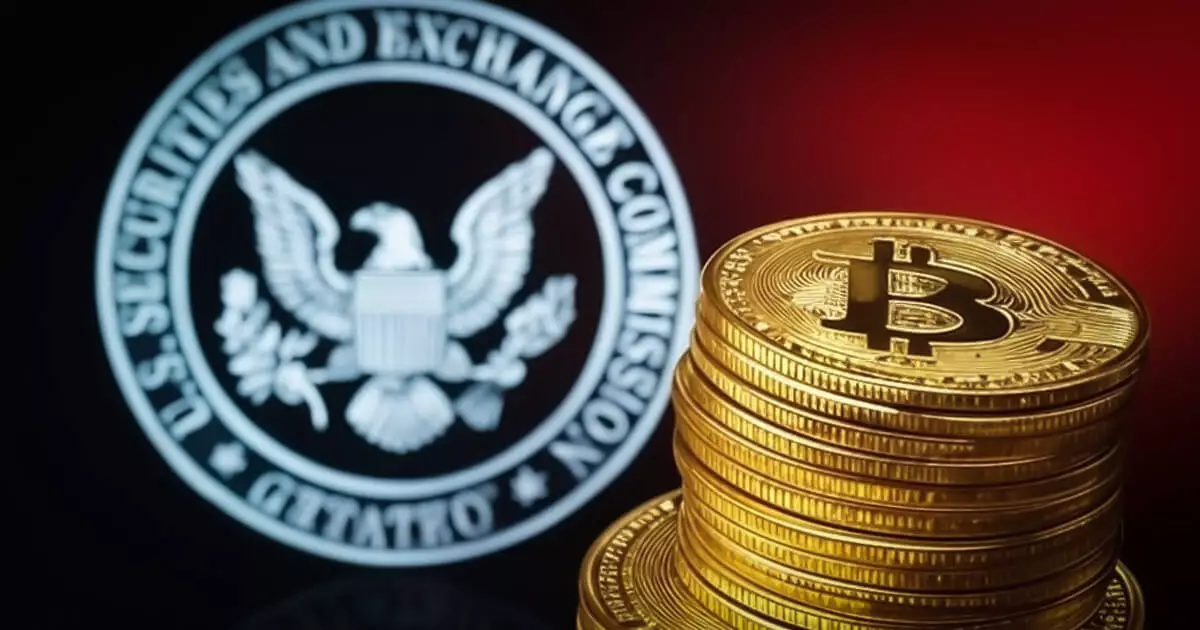The financial landscape is rapidly evolving, particularly due to the rise of cryptocurrencies and blockchain technology. Recognizing the need for a robust regulatory environment, the U.S. Securities and Exchange Commission (SEC) recently announced the establishment of a dedicated crypto task force. Under the stewardship of Commissioner Hester Peirce, often referred to as “Crypto Mom” due to her persistent advocacy for blockchain innovation, this initiative represents a pivotal shift in how digital assets will be regulated moving forward.
For years, the SEC has relied on enforcement actions as its primary method for overseeing the burgeoning realm of digital assets. This reactive stance has drawn criticism for its tendency to cause confusion among investors and entrepreneurs. Many within the crypto community have felt that the agency’s approach has been less about guiding innovation and more about punishing perceived missteps. This newly formed task force is designed to address those concerns by providing a clearer and more coherent regulatory framework that is essential for fostering growth and innovation within this dynamic industry.
Acting Chairman Mark Uyeda emphasizes that the task force will aim to define regulatory boundaries more transparently while also establishing practical registration processes for industry participants. By contrast to previous enforcement-centric models, this initiative seeks a more collaborative approach.
Leadership and Structure of the Task Force
Commissioner Peirce, as the lead of this task force, brings extensive knowledge and experience to the table. By appointing Richard Gabbert and Taylor Asher as Chief of Staff and Chief Policy Advisor respectively, the SEC is clearly investing in a leadership team poised to navigate the complexities of crypto regulation. Peirce’s presence in this role is particularly important, as her commitment to innovation and understanding of the nuances within the crypto space is expected to shape the task force’s agenda profoundly.
Acting Chairman Uyeda has expressed anticipation for Peirce’s leadership, noting that the task force would work across various divisions of the SEC. This collaborative workflow indicates a departure from siloed operations and recognizes the multifaceted nature of the crypto sector, which intersects with multiple regulatory frameworks.
The formation of the crypto task force signals a departure from the SEC’s past methodologies. Rather than relying solely on enforcement as a tool of regulation, the SEC is now shifting towards a more proactive stance. This involves creating dedicated policies and frameworks to guide crypto ventures in compliance with the law.
The SEC’s commitment to deploying enforcement resources more judiciously—targeting clear violations rather than wielding regulatory power as a weapon against ambiguous principles—illustrates a nuanced understanding of the crypto environment. This new philosophy aims to build a foundation of trust between regulators and industry stakeholders, thereby promoting a healthier marketplace for both investors and innovators.
In addition to its internal reforms, the SEC’s crypto task force is poised to promote collaboration with various federal and state agencies, as well as international counterparts. Joining forces with the Commodity Futures Trading Commission (CFTC) and other regulatory bodies will ensure that the U.S. framework aligns with international standards, potentially creating a unified approach to crypto regulation.
Furthermore, the task force will offer technical assistance to Congress as lawmakers overhaul the current legislative landscape surrounding digital assets. Peirce has emphasized that collaboration with a broad range of stakeholders—including industry experts, academics, and investors—is foundational for the task force’s success.
The establishment of the SEC’s crypto task force marks a crucial step in recognizing and addressing the unique challenges presented by the crypto industry. By fostering a cooperative regulatory environment, the SEC aims not only to protect investors but also to ensure that the U.S. remains a competitive hub for cryptocurrency innovation.
While there are still many hurdles to overcome, the intention behind the task force indicates that the SEC is finally ready to embrace cryptocurrency rather than merely regulate it into irrelevance. The future of digital assets in America could hinge on how effectively this new initiative adapts to the rapidly changing landscape while balancing innovation with consumer protection. As the crypto market continues to evolve, the role of regulatory bodies such as the SEC will be more critical than ever in shaping a sustainable future for digital finance.















